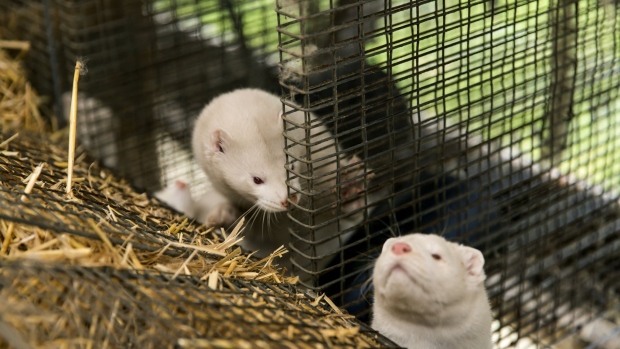Nov 9, 2020
Danish Mink Cull Shelved After Government Botches Covid Response
, Bloomberg News

(Bloomberg) -- Denmark is shelving a plan to immediately slaughter millions of mink, after opposition lawmakers slammed the government’s handling of the matter.
The proposed cull -- 17 million animals were to be gassed and either burned or thrown into mass graves -- generated global interest last week amid fears that a new Covid mutation that started in Danish mink farms might hamper efforts to develop a vaccine.
But it’s now clear that the Social Democrat administration of Prime Minister Mette Frederiksen, which initially issued an order to mink farmers, lacks the three-quarters majority needed to pass such emergency legislation through parliament.
Farmers, who had been promised financial incentives by the government to proceed swiftly, were reportedly halting their mass cullings by Monday afternoon. About 2.5 million animals have already been killed, according to broadcaster TV2.
Danish mink farmers and the center-right opposition bloc have characterized the government’s plan to kill Denmark’s entire mink population as an overreaction. Meanwhile, the health ministry on Friday had to walk back earlier comments suggesting the virus had spread to the east of Denmark, which it apparently hasn’t.
The opposition has also latched on to evidence that the most recent case of the mutant variant of Covid-19 -- called cluster 5 -- was identified in Denmark as far back as September.
But the government, which says it has coordinated its plans with the World Health Organization, warns that the latest mutation is just the tip of the iceberg. It says there’s a risk that new and more dangerous variants will develop in mink farms, unless all the animals are culled.
The mink industry, while angered by the proposed cull, signaled it would ultimately have little choice. Tage Pedersen, the chairman of Danish Mink Breeders, said he expects “the closure of the entire industry.”
The government has proposed support measures for mink farmers to ensure workers made redundant continue to receive at least 75% of their monthly wages, or a maximum of 30,000 kroner ($4,800).
©2020 Bloomberg L.P.







